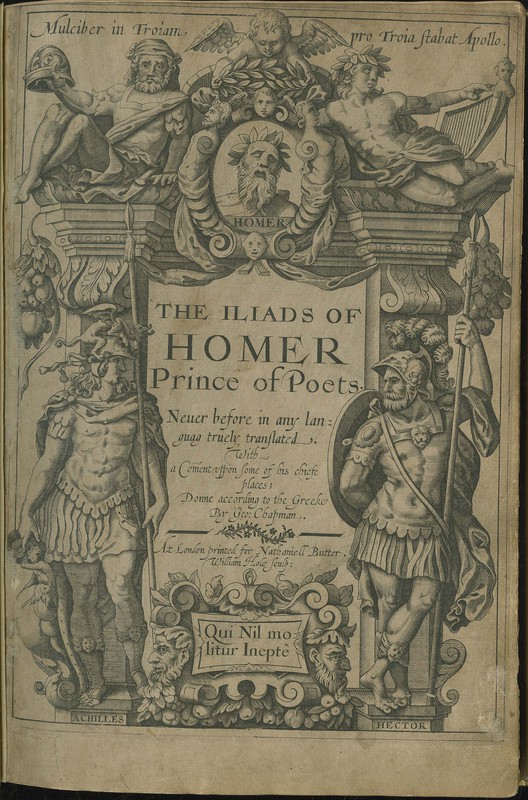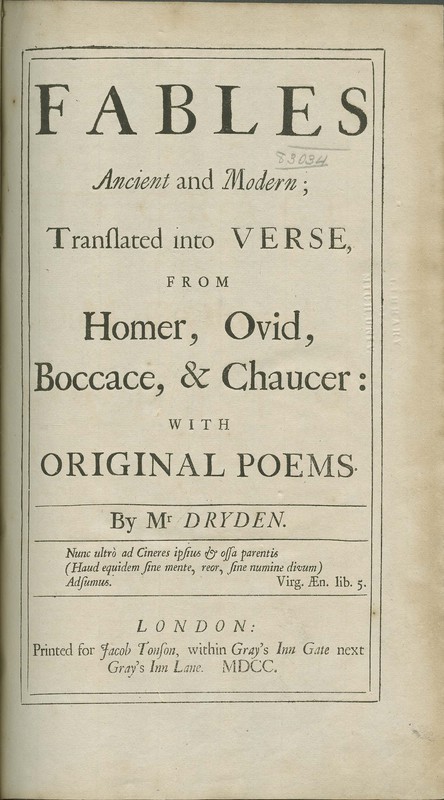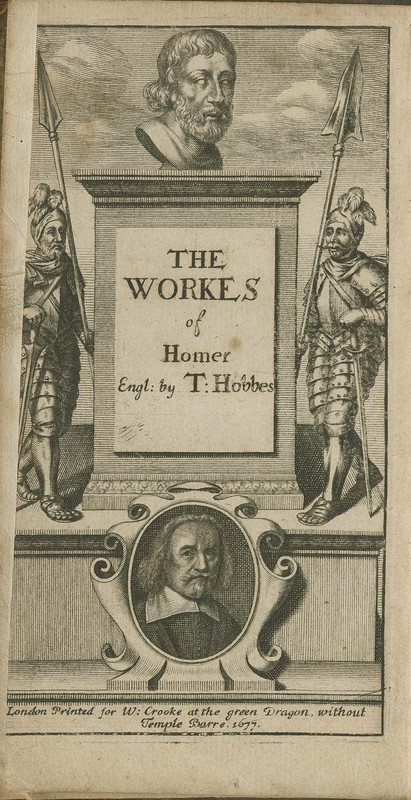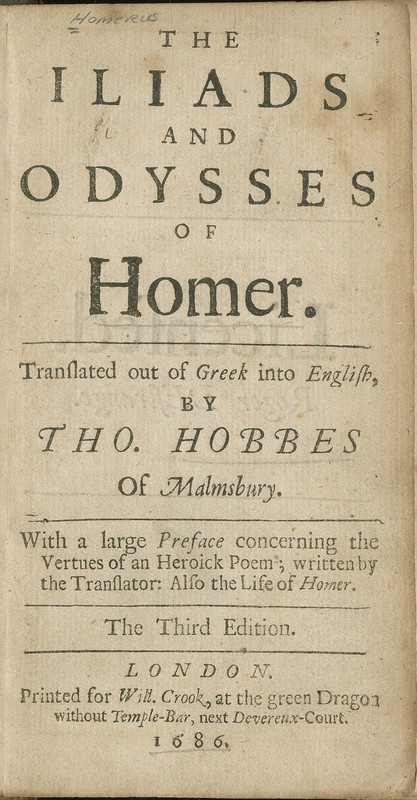Thomas Hobbes
Hobbes's masterpiece Leviathan, or, The Matter, Form, and Power of a Common-wealth, Ecclesiastical and Civil (1651) caused him trouble with the loyalists during the Cromwell's era because they thought the book endorsed the change of political allegiances if a monarch was cruel. At the age of eighty-five, when his philosophical works had been banned, Hobbes returned to the classical studies of his youth, as his extrardinary translation of Thucydides well attested, and began to write his English version of the Homeric poems. Firsst published in 1676, his translaton of the Odyssey was so successful that he was encouraged to undertake the translation of the Iliad as well. His literary style was concise and direct as one can easily observe in his version of the first four verses of the Iliad:
O goddess sing what woe the discontent
Of Thetis' son brought to the Greeks: what souls
Of heroes down to Erebus it sent,
Leaving their bodies unto dogs ad fowls.

George Chapman

John Dryden


